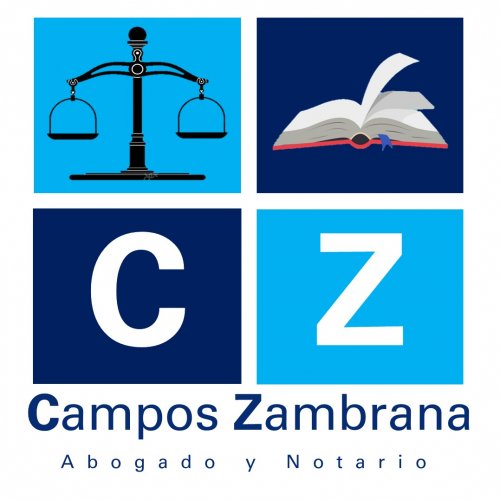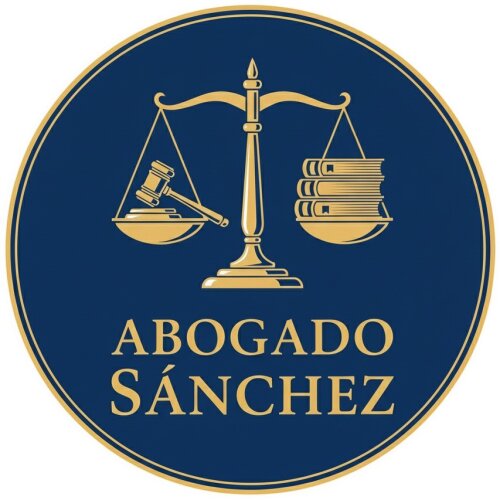Best Family Lawyers in Nicaragua
Share your needs with us, get contacted by law firms.
Free. Takes 2 min.
Free Guide to Hiring a Family Lawyer
Or refine your search by selecting a city:
List of the best lawyers in Nicaragua
About Family Law in Nicaragua
Family law in Nicaragua encompasses a range of legal matters related to familial relationships. This includes marriage, divorce, child custody, adoption, and domestic violence. The legal framework governing family issues is largely shaped by the Nicaraguan Civil Code and Law No. 870, known as the Family Code, which came into effect in 2015. This legislation aims to ensure the protection of family integrity, promote equality among family members, and safeguard the rights of children and adolescents.
Why You May Need a Lawyer
There are several situations where individuals in Nicaragua may require legal assistance in family matters. Common scenarios include:
- Divorce Proceedings: Navigating the legal requirements and ensuring fair division of marital assets.
- Child Custody and Support: Ensuring the best interests of the child are met and managing support obligations.
- Domestic Abuse Cases: Seeking protection orders and legal recourse for victims of domestic violence.
- Adoption Processes: Assisting with the legal steps necessary for adopting a child, whether domestically or internationally.
- Marriage Settlements: Preparing pre-nuptial or post-nuptial agreements to protect personal assets.
Local Laws Overview
The Family Code of Nicaragua (Law No. 870) is the central legal document regulating family matters. Key aspects include:
- Marriage and Divorce: The code outlines legal requirements for marriage and establishes both fault and no-fault grounds for divorce, promoting equitable division of property.
- Child Custody: The focus is on the best interest of the child, considering factors such as parental ability and the child's needs.
- Child Support: Enforcement of financial support obligations to ensure adequate care for children.
- Domestic Violence: Strong legal measures are in place to protect victims and provide avenues for legal redress.
- Adoption: Procedures ensure that adoptions serve the child's welfare, with strict legal protocols to protect all parties involved.
Frequently Asked Questions
What is the legal marriage age in Nicaragua?
The legal age for marriage in Nicaragua is 18 years. However, with parental consent, individuals can marry at 16.
How does the divorce process work in Nicaragua?
Divorce can be pursued through fault or no-fault proceedings. Both parties must present their case in Family Court, where issues like asset division and child custody are resolved.
What are the criteria for child custody decisions?
Court decisions are based on the best interests of the child, including the child's age, emotional ties with parents, and each parent's ability to provide a stable environment.
Is domestic violence recognized in Nicaraguan law?
Yes, domestic violence is a criminal offense, and victims can obtain protective measures, including restraining orders and legal action against their abuser.
How is child support calculated?
Child support is calculated based on the income of the non-custodial parent and the needs of the child. Courts ensure compliance with support obligations.
Can foreigners adopt children in Nicaragua?
Yes, foreigners can adopt children; however, they must satisfy specific legal criteria and undergo a thorough evaluation process by Nicaraguan authorities.
What should I do if I cannot afford a lawyer?
Legal aid services and NGOs may provide free or reduced-cost legal assistance for those who qualify, particularly for cases involving children or domestic violence.
How are marital assets divided during a divorce?
Nicaragua follows the principle of community property, meaning assets acquired during the marriage are typically divided equally unless an agreement states otherwise.
Can prenuptial agreements be enforced in Nicaragua?
Yes, prenuptial agreements are legally recognized and enforceable as long as they comply with Nicaraguan legal standards and both parties consented freely.
What legal resources are available for family law issues?
Local family courts, legal aid clinics, and NGOs are available resources to support individuals facing family law issues.
Additional Resources
For further assistance, consider reaching out to the following organizations and bodies in Nicaragua:
- Ministry of Family, Adolescents, and Children (MIFAN): Provides resources and support for families.
- National Police Domestic Violence Unit: Offers protection and assistance for domestic violence victims.
- Centro Nicaragüense de Derechos Humanos (CENIDH): Offers legal advice and support in human rights matters.
- Local Family Courts: Handle family law cases and disputes.
Next Steps
If you need legal assistance in family matters, consider the following steps:
- Identify the specific legal issue you face, e.g., divorce, custody, or domestic violence.
- Consult with a qualified family law attorney to discuss your case and explore legal options.
- Gather all relevant documentation such as marriage certificates, financial records, and any legal documents related to your case.
- If you cannot afford legal fees, seek out pro bono services or legal aid options available in your area.
- Stay informed about your rights and obligations under Nicaraguan family law to make educated decisions throughout the legal process.
Lawzana helps you find the best lawyers and law firms in Nicaragua through a curated and pre-screened list of qualified legal professionals. Our platform offers rankings and detailed profiles of attorneys and law firms, allowing you to compare based on practice areas, including Family, experience, and client feedback.
Each profile includes a description of the firm's areas of practice, client reviews, team members and partners, year of establishment, spoken languages, office locations, contact information, social media presence, and any published articles or resources. Most firms on our platform speak English and are experienced in both local and international legal matters.
Get a quote from top-rated law firms in Nicaragua — quickly, securely, and without unnecessary hassle.
Disclaimer:
The information provided on this page is for general informational purposes only and does not constitute legal advice. While we strive to ensure the accuracy and relevance of the content, legal information may change over time, and interpretations of the law can vary. You should always consult with a qualified legal professional for advice specific to your situation.
We disclaim all liability for actions taken or not taken based on the content of this page. If you believe any information is incorrect or outdated, please contact us, and we will review and update it where appropriate.
Browse family law firms by service in Nicaragua
Nicaragua Attorneys in related practice areas.
Browse family law firms by city in Nicaragua
Refine your search by selecting a city.










